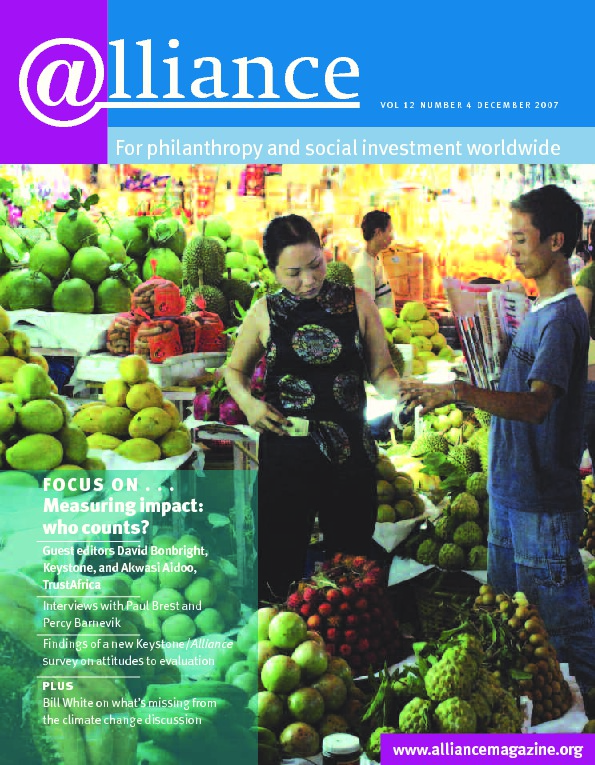Can GuideStar solve the problem of providing the data that will make the work of CSOs more accessible and more transparent? This was one of the questions the GuideStar International Assembly in London in September wrestled with.
Geoff Mulgan of the UK-based Young Foundation quoted a remark of Confucius highlighting the importance of trust. We are now entering a period of economic downturn, said Mulgan, and CSOs need to build trust. He talked about the creation of feedback loops, such as Patient Opinion, which gives users of the UK’s National Health Services a chance to comment on their experiences, and how these empower citizens and put pressure on providers. He talked about the involvement of beneficiaries and the new vogue for 360-degree accountability. It is critical to absorb these principles of answerability into civil society, he said, if we are to create trust and legitimacy and encourage a learning culture. Comparative data is vital if organizations are not simply to assume they’re doing a great job, and GuideStar can help to provide this.
David Bonbright of Keystone suggested that GuideStar’s key achievement may be to create a platform for third-party reporting. Pushpa Singh of Give India agreed, saying that their donors want facts and numbers, not long reports. Field-based, searchable information is vital.
Transparency can be a double-edged sword, other speakers pointed out, and is often used against civil society. Buzz Schmidt, GuideStar founder, felt the risks of a lack of transparency are greater. Without transparency there is no marketplace, he added. Few of us know enough about CSOs to allocate money optimally and effectively.
Subscribe now from only £45 a year!
This article is only available for our subscribers
Existing users can login here





